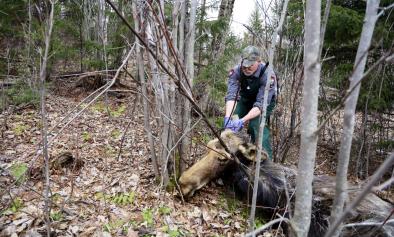Science Source
Biodiversity redistribution under climate change: Impacts on ecosystems and human well-being
- States that the ability of natural ecosystems to deliver ecosystem services is being challenged by the largest climate-driven global redistribution of species since the Last Glacial Maximum
- Meta-analyses show that, on average, terrestrial taxa move poleward by 17 km per decade and marine taxa by 72 km per decade
- Reviews evidence that climate-driven species redistribution at regional to global scales affects ecosystem functioning, human well-being, and the dynamics of climate change itself
- Demonstrates the serious consequences of this species redistribution for economic development, livelihoods, food security, human health, and culture, and documents feedbacks on climate
- Shows that production of natural resources required for food security, patterns of disease transmission, and processes of carbon sequestration are all altered by changes in species distribution
- Concludes that consideration of these effects of biodiversity redistribution is critical, yet notes that it lacking in most mitigation and adaptation strategies
Related Content
Science Source
| Global Change Biology
Decadal-scale phenology and seasonal climate drivers of migratory baleen whales in a rapidly warming marine ecosystem
Daniel E. Pendleton, Morgan W. Tingley, Laura C. Ganley et al
Headline

May 19, 2022 | Climate Nexus Hot News
Climate Change Great For Winter Ticks, Very Bad For Moose Calves
Science Source
Climate change increases cross-species viral transmission risk
Colin J. Carlson, Gregory F. Albery, Cory Merow et al
Science Source
| Journal of Animal Ecology
Climate change affects bird nesting phenology: Comparing contemporary field and historical museum nesting records
John M. Bates, Mason Fidino, Laurel Nowak-Boyd et al


